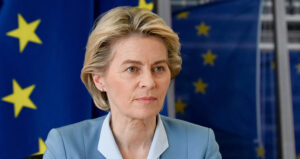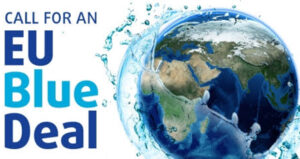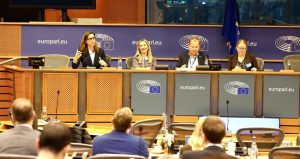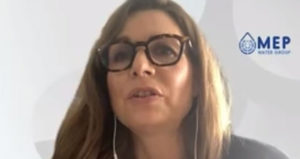Von der Leyen puts Water Resilience Strategy back on the table
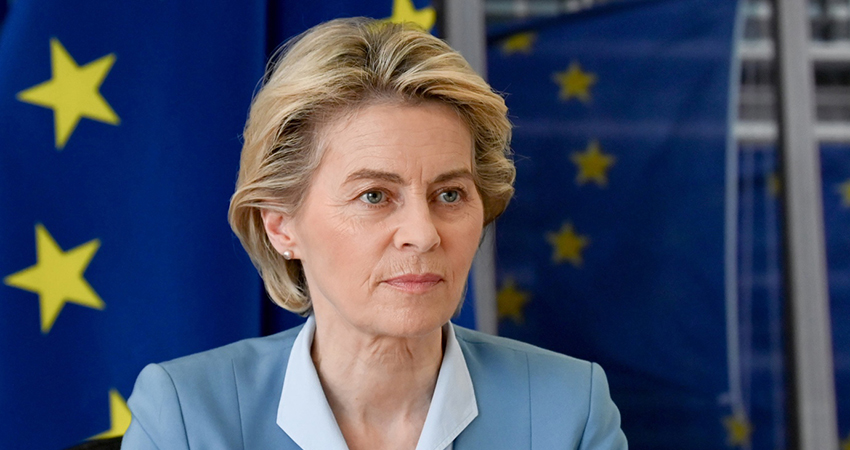
-
 Esther Rasenberg
Esther Rasenberg
Share article:
“We need a new European Water Resilience Strategy to ensure sources are properly managed, scarcity is addressed, and that we enhance the competitive innovative edge of our water industry and take a circular economy approach. As part of this, we will lead efforts to help mitigate and prevent acute water stress across the world.” These words are part of the political guidelines Ursula van der Leyen presented before her re-election in July.
Ursula von der Leyen was re-elected by the European parliament with a majority of votes as president of the European Commission. In her Political Guidelines for 2024 -2029 she put the Water Resilience Strategy back on the table. Although other priorities, like the war in Ukraine, competitiveness are mentioned before Water Resilience it is obvious the initiative is back on the table.
Financing water resilience
“We must unlock the financing needed for the green, digital and social transition. We will maximise public investment and leverage and de-risk private capital – working closely with the European Investment Bank. This investment cannot be financed through the public purse alone. Completing the Capital Markets Union could attract an extra EUR 470 billion of investment per year. We need to be more ambitious in tackling the lack of private capital and our still too shallow markets”, said Van der Leyen before the MEP’s could vote about her re-election.
European Climate Adaptation Plan
“As Europe’s climate warms faster than the global average, we must step up work on climate resilience and preparedness”, stated Von der Leyen. “We will map the risks and preparedness needs for infrastructure, energy, water, food and land in cities and rural areas, as well as the need for data and early warning systems. This will be part of the European Climate Adaptation Plan.” This plan is meant to support Member States notably on preparedness and planning and ensure regular science-based risk assessments. This must go hand in hand with strengthening Europe’s water security. Water is an indispensable resource for the security of our food, energy and economy. We need a new approach for a modern and reinforced EU budget.”
Request from European ministers
In the beginning of July the European Council has added water resilience to the strategic agenda for 2024-2029. The leaders of the European Member States met the 27th of June in Brussels to discuss the strategic agenda for the next institutional cycle. It is now up to the European Parliament, the Council and the European Commission to put this agenda into action.
Besides that before the re-election 21 Member States have urged the European Commission in a letter to prioritise the battle against droughts and floods to safeguard Europe’s water security in the face of climate change. The newspaper Politico published the letter, addressed to Climate Action Commissioner Wopke Hoekstra and Green Deal chief Maroš Šefčovič, was endorsed by ministers from 21 of the 27 EU countries. The signatories emphasised the necessity to look at the big picture, and account for the water needs of people, ecosystems, agriculture, energy and industry.
Climate change in Europe
Europe is increasingly facing the dual threats of rising temperatures and erratic precipitation patterns, leading to more frequent and severe droughts and floods. These climate-induced phenomena are already wreaking havoc on lives, livelihoods, and ecosystems, and their impacts are projected to intensify. Coastal communities, in particular, face heightened flood risks due to rising sea levels. This call comes months after the European Commission postponed its water resilience strategy, which was initially expected in March.
Safeguarding our future
According to the European Environment Agency around 20% of the European territory and 30% of Europeans suffer from water stress every year. The economic cost is estimated to be around € 9bn each year, with this figure excluding damage to ecosystems, and potentially reaching € 65bn per year by the end of the century. The ministers ask the European Commission to put the Water Resilience Initiative back on the table. ‘Europe needs a sound approach to water resilience that encompasses not only the amount of water we have, but the quality of this water too. If we want ‘circular water’, we must keep pollutants away through source control measures. A reliable supply of affordable water will help the EU deliver its promises of a secure future for everyone.’
Water Resilience Initiative was postponed earlier this year
In February the European Commission took the water resilience initiative off their agenda. The news to ‘pause’ the initiative for water resilience was met with disbelief and concern by many sectors. The reason why the European Commission is postponing the Water Resilience Initiative remained unclear. Behind the scenes was speculated the delay was due to the growing farmer protests in the European Union.


